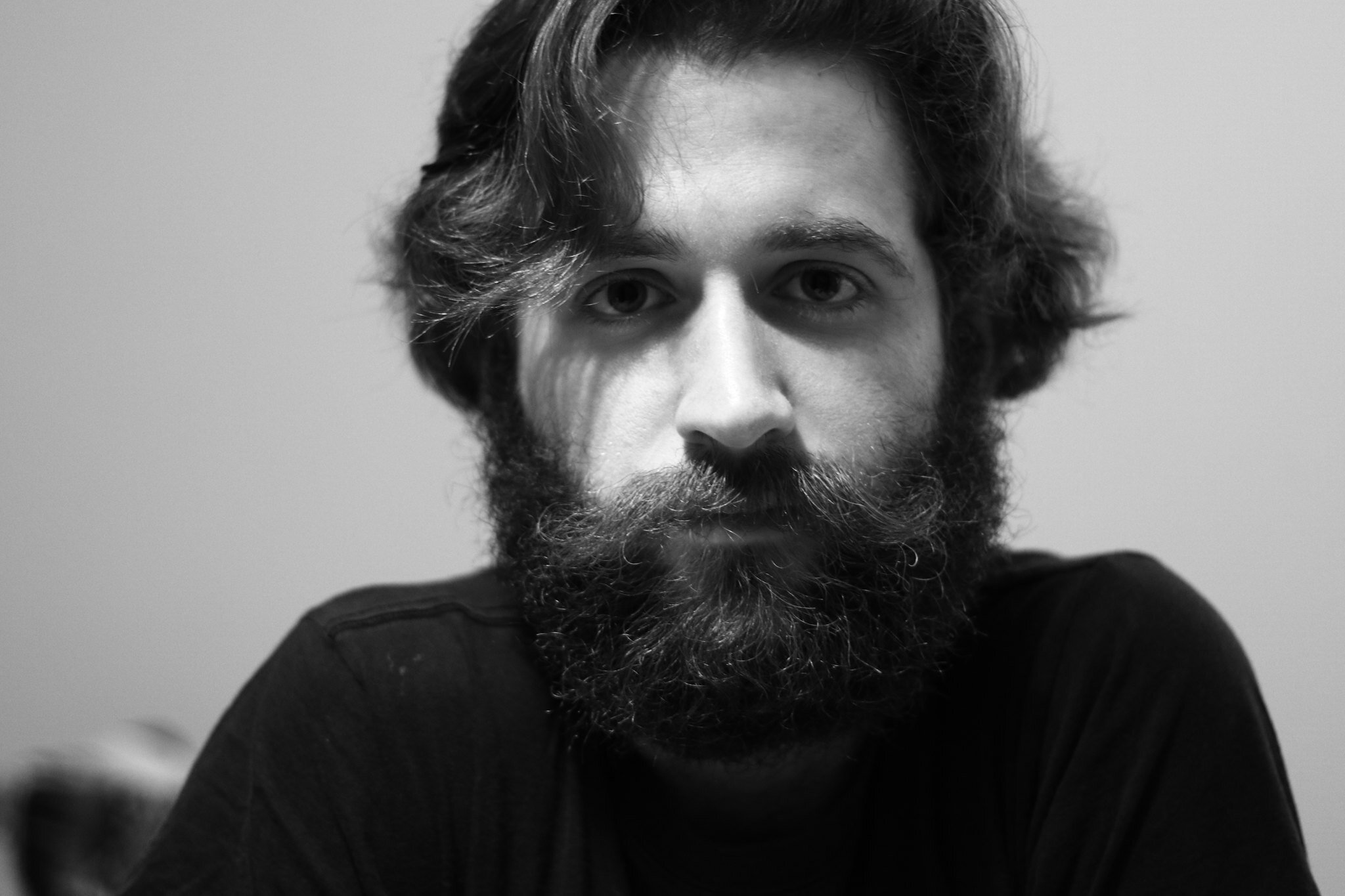The Long and Tedious and Difficult Road into Medicine.
““Per angusta ad augusta””
A Guide to Medicine: a little Introduction
The fact that you are reading this shows that you are interested in the health care profession. I have to be frank; it is tough out there. I cried a few times and felt hopeless too as it is difficult and challenging. Candidates out there are very strong as medicine and dentistry is a very demanded profession, but it is manageable and reachable if you apply cleverly. I will try as much as I can to guide and enlighten you but there is so much information that a Skype call would be best or you could email me. Bear in mind that some areas may already be outdated as I applied for September 2017 intakes. Also, note that this blog mostly applies to the UK medical school and partially applies to Australian medical schools. For some student getting into medicine is easy and a breeze but for others like me… well, it was a challenge. Hopefully, you find this helpful and useful!
About myself
I matriculated at Saint Charles College, South Africa, in 2012 with my 6 AS levels subjects and only 2 A-level subjects. By then I wasn’t sure what I wanted to do but I knew it was in the direction of health. My A-levels marks were not very good and not up to standard for a minimum entry-level and I only did two A-level subjects (my school had a weird way to do Cambridge), which you need at least three for the applications into medicine. So, I went to Rhodes University and did a Bachelor of Pharmacy which I really appreciated. I knew that medicine was my final destination, but I was also interested in pharmaceutical chemistry. It is actually very common for students not to apply for medicine straight after matric (also known as your last year of your secondary education). Entry into medicine has many roads! I managed to finish at Rhodes University with a degree with distinction/cum laude and throughout my degree, I accumulated useful skills and strengthen my CV for medicine (we will speak about it later as it is very important). I am now doing a Bachelor of Medicine, Bachelor of Surgery (MBBS) program at James Cook University, Australia, where they specialise into rural, remote and tropical health. Below is a table with the schools that I applied to.
Table 1: Schools that I applied to.
What you will be required to do
Recommended books
I highly suggest these books, even though you may or may not be a graduate, these books will give you extensive knowledge and information about medicine. They also mention universities and their interviews style.
Table 2: Books and information
Around the end of March, the UCAS portal opens for that year, example: UCAS 2017 for the year 2017 (medical student intake for 2018 as you hand in UCAS in 2017). What is UCAS? it is an important portal where all your information goes onto. Like everything! You can only apply to a total of 4 medical schools in England / Whales and Scotland. All 4 schools that I applied to were all based in Scotland. They are exceptions such as Queen Mary University of London medical school allowed me to apply for the medical course in Malta even though I already filled in my 4 options, so be careful. UCAS closes on the 15th of October of that year for medical students. The UKCAT opens in May and finishes at the end of September for that year, you have to write this test. If you apply in 2017 it means that you are applying to start Medicine / Dentistry for the September 2018 intakes.
Table 3: Important dates (roughly those dates)
Academics
Don’t be disheartened if you didn’t get all the A* in 3 A-level subjects. I didn’t but I did a Bachelor’s degree of 4 years in a relevant health degree. There are three types of academic entry-level that the UCAS take. These are:
Your A-level marks
Bachelor’s degree (usually 3 years) - NQF 7
Bachelor with honours – NQF 8
For your A-level, you need subjects such as chemistry, maths, biology or physics. I think you must have biology, chemistry and maths but please check the criteria with the universities. If you are going to be a graduate, it is best to have a bachelor in the relevant field such as a Bachelor Science, but I have seen some universities accept BA or Fine Art. You need a minimum of 2:1 or 2:A or an upper second from your degree. I got a degree with distinction equivalent to a first or 1. Some medical schools only accept an Honours degree and not just a Bachelor’s degree of 3 years.
NARIC – what is it?
It is a company that compares your degree and matches to the relevant British degree. You must have it if you are a graduate and if you have done a degree outside the UK. For example, Rhodes Pharmacy degree is internationally recognised hence after paying the NARIC services I received an electronic copy stating that my degree is equivalent to a British honour’s degree. The reason for this is that other degrees around the world can be on the same level as British degrees when it is compared. This may cost around 80 - 100 £. Go on the website here: https://www.naric.org.uk/naric/
UCAS
A very nice and easy portal to use. You get a username, put in your password and confirm it with your email address. These steps are always guided with videos, watch them all and fill in the steps. This is how you apply to medical school. You put your choices on the UCAS and they will send to the relevant schools. Everything you write is scrutinized, it is paramount that you fill in correctly and please, it may be obvious, but no spelling mistakes especially in your personal statement [3].
Table 4: Shows the steps on the UCAS
Most of this information can be found with this book: Graham, B. and Matt, G. (2011). Graduate Entry Medicine (GEM) (1st ed.). London: BPP Learning Media Ltd.
Step 6 – Details of paid employment
My employees were pharmacist, physiotherapist and radiologists that I managed to get during my holidays. It is not about the money but the experience that you get which is really important why you want to be a doctor. Always keep track of everything [3]! Maybe a diary of what you learned on the day as it would help you how to write your personal statement [3]. This will help you fill in for the jobs that UCAS provides, remember a maximum of 5. I wrote their details in my diary the following way:
Organisation address: Centre Hospitalier (CHU) de St Pierre, Reunion
Contact name: Dr XYZ Intel
Contact cell phone number: +262 (0) 123 45 67 89
Contact email: drxyzintel@awesomehospital.com
Your role: Pharmacist basic assistant
Start date: 5th January 2015 Completion date: 23rd January 2015
Total number of hours: 80, oral presentation on the South African health care was given to the pharmacy department.
Step 7 – Personal Statement
This step is fundamentally IMPORTANT. They will read it, and the interviewers will ask you questions on it. On the UCAS you are allowed to write about 4 000 characters only and only 47 lines, it quickly fills up [3]. Write on Microsoft Word first! It is for the spelling check. Do not try to put any fancy characters or spaces as these do not work on the UCAS. Just write, correct it, and keep going until perfection [3].
“I want to do medicine because I want to help those who are sick and make them better. It is something I really want to do and I think I have the capabilities to do so”
The example above is disappointing and very generic answer and not a convincing reason to do medicine. Do not write like this, show me what you experience, what was it like? Understand how difficult this profession is, the good and bad side of it. Anybody can help, a nurse can help, an assistant can help, someone shadowing can help. Ask yourself: Why do I want to do medicine? If you struggle to answer, then you are extremely unprepared and you do not understand the profession. It is a very rewarding profession and we need people with the right attitude and mentality.
How to write your personal statement
Graham B. and Matt G. in the book Graduate Entry Medicine (GEM) made a fantastic table on how to write a compelling personal statement. The first paragraph needs to be memorable, punchy and briefly explain why medicine. Remember there are maybe 2500 applicants that are applying for that school alone (sometimes even more) so make yourself unique. Paragraph 2 to 4 should be about volunteering, insight experience, key moments, incorporate an academic background, it needs to be about what you have experienced. Your final paragraph can be about your extracurricular activities and reinforce about medicine.
Here is my personal statement. Now before you get any ideas about copying my personal statement for your own interest, bad luck for you they have a system where all personal statements are captured and compared to. If you are caught cheating or copying you can say goodbye to medicine in the UK. Besides, it showed from the beginning you are a fraudulent person and we don’t want that anywhere in the health profession. Also, this took me a month to perfect it so don't wait too late.
→ Health is a human right and everyone, everywhere should have access to healthcare.
(Memorable opening, remember everyone is writing it, don’t make your reader be bored, do not be generic. You want to wow them through what you have experienced)
→ The Phelophepha Train, translates from Sotho to good and clean health, is tasked with delivering primary healthcare to the most rural and impoverished parts of South Africa, making the possibility of providing treatment to all a reality. It is unique as it is the only primary health care delivery train in the world, and in the final year of my pharmacy degree, I was able to volunteer on board. What I experienced was phenomenal. I met dedicated healthcare professionals and students and helped people in desperate need of care. My confidence grew and my knowledge of medication and pharmaceutical care sharpened. I found this experience to be rewarding as the people were so grateful to receive medical care. The feeling of being able to make a positive impact on their lives was highly fulfilling and encouraging. According to WHO, 2 billion people currently do not have access to medicine and it was there, where I learned that even as a pharmacy student, I can make such a difference in someone’s life. This confirmed that pushing on with my studies within the medical world is definitely the right career path for me.
(Reiterates why I want to do medicine, use experience and what you felt)
→ In 2011, I was fortunate enough to assist Professor Barau at the Centre Hospitalier Universitaire (CHU) on Reunion Island with several gynaecological surgeries. I enjoyed being part of the team and seeing how intricate it is, from the cleaning staff to the anaesthetist and nurses to the surgeon himself, all fitting together to form the perfect jigsaw puzzle. The time I spent in the operating theatre was inspiring and offered invaluable insights into working in the medical world regarding expectations and demands that would be placed on me as a doctor. During 2014 to 2016, I had the opportunity to work alongside radiologists, pharmacists, general practitioners and physiotherapists. During my time spent at Dr Delage’s radiology practice, I was astounded by the technological progress made in creating machines like MRI and ultrasound instruments, that allow doctors to see the inner workings of the body as well as the amount of anatomical and physiological knowledge one needs to interpret the images. I found this field fascinating however, I also realized that medicine can be an emotional roller coaster as doctors need to learn the art of communication and adapt to different situations as I witnessed the joy of mothers finding out that they are pregnant to the diagnostics of cancer and the beginning of chronic treatments.
→ While helping a retail pharmacy at Bras-fusil, I gained valuable knowledge on the importance of pharmaceutical care and the sophisticated management of medicines. I also spent time in the CHU pharmacy department where I helped with logistics and details of delivering medication to patients on a large hospital wide-scale and learned about the functioning of different sectors like; sterilization, chemo-therapy medicine and the safekeeping and delivering of opioid medications. I was able to give an oral presentation to the whole staff of the Pharmacy Sector on the Health Care of South Africa.
→ In addition to my academics, I am a committed Ballroom and Latin dancer and I have competed on local and international scales. I am also involved in the running of my DanceSport club as the committee treasurer. One of my proudest achievements at Rhodes University was the honour of receiving the prestigious award of Investec Top 100 for Student Leadership, which demonstrates that academics is not the only goal to strive for as it is important to maintain a well-balanced set of skills.
(Add some fun, you not a robot and not always academic)
→ I aim to develop the skills and knowledge from my pharmaceutical care and pharmacology studies in combination with my ongoing dedicated personal studies of medicine to build a dynamic international medical career. Already the experience gained from working as an assistant alongside surgery professors has been invaluable and indicates my personal drive to proactively make my own path in my career.
(Reiterates as a final message)
Avoid generalities such as
“from my work experience, I have seen that medicine offers the challenges and teamwork I am looking for in a career [3]” Boring!
“in my spare time I enjoy socializing with my friends by going to the bars [3]” Use something else, you are allowed to socialize and show that side but don’t use alcohol, use sports or clubs [3].
Don’t be arrogant, be enthusiastic and confident. Be knowledgeable about medicine.
Don’t start the phrase with “I”
Don’t repeat and don’t make spelling mistakes [3]. The shame otherwise...
My interviewers asked me questions about it, remember to read your personal statement before the interview as a refresher.
The UCAS official personal statement flow chart can be found on their sites.
Still struggling? I got you covered, try studential.com, the UCAS personal worksheet, How to write a UCAS Undergraduate personal statement, and How to write a personal statement.
Step 8 – Reference Statement
For your Reference Statement, you cannot use your parents, friends, partner or your dad’s doctor friend. You may ask a clinician you worked with or shadowed or anyone who you are close with professionally. Your referee should comment on how:
You are committed to medicine [3]
Your academic potential and ability [3]
Academic interest [3]
Attributes [3]: communication skills, empathy, honesty, integrity, teamwork, coping under pressure, stress, et cetera.
Mitigating circumstances (death of a loved one) [3]
Other things not included in your personal statement [3]
Agents and Tutelage©
I used an agent for Australia and I used Tutelage. For Australia, knowing that I am not good at standardised test such as the UKCAT (which is the reason only 1 out 4 called me for interviews in Scotland), I applied to Monash University and James Cook University because they don’t need the MCAT standardised test (actually now it is the UCAT), which in my opinion is extremely difficult for a graduate. That turned out very well for me as I got in at JCU. I used a French agent who is specialized in medical schools in Australia. Maybe you could use an agent specialised in your country. They are very knowledgeable and good at their jobs, I was extremely satisfied.
Tutelage© helps students for weird and interesting countries; these are Bulgaria, Hungary and other wonderful East European countries. This may be a very good option for you! The degrees tutelage present are medically accepted in the UK, it is cheaper than the UK and affordable, it is in English and you discover an interesting country with its culture. Consider this and open your doors to everything! These agents are very helpful so I recommend them. Here is their website tutelage.org.uk and tutelage medicine in Europe.
IELTS or TOEFL?
IELTS: International English Language Testing System
TOEFL: Test Of English as a Foreign Language
Both have been equally accepted but I chose IELTS because my brother had the books. For IELTS: You need to do the Academic and not the General Test for the Universities. Only do this if you are from a country that its main language is not English, every university will ask for this regardless even if you did a degree in English. Depending on the medical school, I highly suggest that you score a Band 7 across all 4 different stages of the test. That is: Listening, Speaking, Writing and Reading. There are 9 bands ranging from 0 (you don’t understand English) to 9 (you are literate in English). Go online, book yourself a test at the local test centre. The IELTS results last for 2 years only.
UKCAT
This is a very important test. There are 4 sections. English passage, maths, abstracts and decision base theme. All of this is done at your local centre if you booked there on a computer and you have 2 hours to complete it. It is a difficult test but you don’t need any prior knowledge! What you need is a lot of practise and get some help with KAPLAN as they help a lot in standardised tests. Book the test early around the month of August. Prepare intensively 3 weeks before the test.
The test cost 100 £ outside the UK. You write the test for that year and you can only write it once a year, ex: UKCAT 2017 test is for the 2018 September medical intake. I did okay but not enough to be called for interviews for Dundee and I missed it by 1 mark for Glasgow medical school for the interview. This test is extremely time constraint and it is aimed to do that, for example: you have 30 seconds per mark (in some sections) which is impossible. This test your intellectual and how you cope under pressure and the lack of time, just like in medicine.
English passage: basically, you read a paragraph about half the length of an A4 page, and there are 4 questions each one mark. You have 2 minutes per 4 marks. There is no time to read everything, it’s about skim reading and answering very fast.
Maths: it is not hard but again time constraint. 30 seconds per marks. You don’t need to do hectic maths to answer and you have to use the computer calculator. This test what you prioritize and how you go about answering quantitatively.
Abstract: the most bizarre and fun to do in the test. You have a bunch of shapes, colours, size, arrangements and what you need to do is identify the pattern and allocate your answer to the pattern. It may be easy if you have been trained.
Decision making: test on how you perceive what is wrong or right in a tough and challenging decision you may take while being a doctor.
For more information click on the links for the UKCAT information and the Kaplan course for online preparation with a virtual tutor. I highly recommend it, they were really friendly and helpful.
Pearson Vue
Pearson Vue is another portal that is easy and quick to fill in. Although it opens later during the year so don't worry but do check what the UKCAT says about it. What they do is send your UKCAT scores to the allocated medical school that you have applied to. That’s it. You need to fill in your UKCAT number. You get that when you book your test.
The Interview
You can hear your heart pounding in your chest knowing that this is a very important moment of your life, so how to make this as easy as possible? Interviews are extremely scary but at the Aberdeen medical school after 1 minute with the interviewers, I was very relaxed. They are very friendly and they try to keep the conversation going because they know you are anxious which is a normal emotion. Interviewers are trained to get the best answers out of you so you can get your best chance (depends on which school).
My interview went something like this:
7 stations with 7 minutes each and in total I spoke to 7 interviewers. Different stations speak about different things such as confidentiality, your attributes, how you cope with stress, decision theme situation with no right and wrong answers, a real-life role of a patient that had a stroke and I had to speak with that patient, why medicine, how medicine works in the UK, your personal statement and other curveballs.
Different medical schools have different ways to do the interview. Some only have 2 interviewers for an hour or there may be a panel it depends on the school so read up before attending the interview so you know what to except. I heard horror stories at Nottingham medical school where they ask one question for 10 minutes and say nothing and if you can’t answer they just stare at you. So it depends.
This is another extremely important step. By then out of 2400 – 2600 applicants for that medical school you have made it to the top 800! Now it is time to be top 100 – 220 depending on the school size. So, in essence, you are competing with people who are clever and that already have a good score at the UKCAT. How to differentiate? That’s where the interview comes in.
Types of questions:
Graham B. and Matt G. in the book Graduate Entry Medicine (GEM) made a very nice list about types of questions they will most likely be based on.
Personal qualities and characteristics –such as what are your qualities and what are bad qualities about yourself. They love that one. Remember please don’t say you are perfect.
Why do you want to become a doctor?
What qualities should a doctor have?
How do you cope with stress?[3] – talk about good and bad stress. It is okay to be stressed but base your answer on how you can cope with stress.
What did you learn from your work experience? [3]
Fact-based questions [3]
Ethnic questions [3] – autonomy, beneficence, non-maleficence and justice.
Difficult topics such as abortion, euthanasia, CRISPR, religion and others.
Practical issues [3]
Body language [3] – are you fidgeting, how you sit, your posture, the way you stand or walk in, do you smile, do you make eye contact, too much movement or hand gesture?
Learn the latest news around the world on Health, that is very important. You don’t have to read papers but know about diabetes epidemic, HIV, poverty, lack of access to medicines, new cancer medication, tuberculosis or the latest Gonorrhoea resistant antibiotics.
Some cool tips:
It’s okay to say I don’t know! This shows you don’t lie, or make up stuff on the spot and instead it shows you are honest. Please and please, read everything about that medical school you are about to attend for the interview. I promise you, they will ask what do you know about our school? Why would a school take you if you can’t even be bothered to look up at what the university, school and campus offer? It is a simple trick and brownie points, here you beat everybody who didn’t read up on the school. I purposely learn so much about the school that it leaves them impressed and it also shows you are keen, interested and determined.
Learn all these questions and the answers by heart! Learn and think of the possibilities of answers if things go wrong, but do not reply like a parrot or robot! Repeat, repeat and repeat. I made my girlfriend, mother and others listen to me and make sure they ask questions differently. Sometimes they may even surprise you. If you can’t answer in front of family and friends imagine in front of a panel of medics!
This may be logical but please look presentable. Wear a suit, a tie, and good shoes so that you can look classy, confident and comfortable. Shave, neat haircut and look like how you want a doctor to look like when he is treating you. I wore a navy blue suit because black is too funeral in my opinion. Walk-in smile and greet them, be happy. Force it if you have to. Come the day before your interview and find the place where the interview is taking place maybe book a hotel near the location. You don’t want to look for the place on the day, my god that’s terrifying to think about it. Arrive about an hour or 30 minutes before it starts.
Skype Interview
Same as above! Imagine you will meet them in real life. Wear a suit, smile at the camera and be early. When I did my interview with James Cook University from Australia (I was in South Africa) the first comment I got was that I looked ‘nice and ready’ meaning during the first 3 seconds they already liked me just because of my smile and appearance. Remember on Skype, they can see your surrounding so get a nice plain room, quiet and interview ready.
Here are some tips that I found on Forde magazine and 9 Things You Need to Prepare for a Skype Interview and 13 tips for nailing a Skype interview.
Work experience and what you can gain
During your work experience, you should see these aspects that are being demonstrated in the health care profession. Pay particular attention and make notes. Such as:
Teamwork [3]: doctors work with other people in an interdisciplinary environment
Leadership [3]
Empathy [3]: empathy leads to trust between patients and the healthcare professional. Trust leads to patients using the prescribed course better (not missing medication and taking them all), using the medication means less time in the hospitals and less likelihood of relapsing (having the disease again) and increasing the prognosis (the outcome of the health for the patient). Hence by showing some empathy in the long term, you have created another place/space at the hospital which means less wastage of medication which is important as the hospitals run on very strict budgets. All of this because you have shown empathy. Try and link other attributes to each other.
Understanding the role of a doctor [3]
Professionalism [3]
This will help for your understanding of the medical degree and profession at the interview and it will help you for the Personal Statement.
My final say
If you are motivated and focused, I believe you can get into any medical schools. Keep your mind clear and always give your best at any challenges. Write everything on a big calendar with all the dates and attack each challenge by preparing extensively and cleverly. So focus on the "what is next" instead of seeing everything at once and panicking. Remember medicine has many roads so do not take a failure and see yourself as lost hope. This gives you time to mature up and discover and experience so that you can relate to any interview questions.
Best of luck!
Published 1st August 2018. Last reviewed 30th December 2021.
Reference
1. Qmul.ac.uk, 2014. THE World University Rankings: Medicine ranked in world top 50. [Online] Available at: http://www.qmul.ac.uk/media/news/items/smd/140582.html
2. Times highered education.com, 2018. Queen Mary University of London. [Online] Available at: https://www.timeshighereducation.com/world-university-rankings/queen-mary-university-london#survey-answer
3. Graham, B. and Matt, G. (2011). Graduate Entry Medicine (GEM) (1st ed.). London: BPP Learning Media Ltd.
4. AAMC.org, 2018. Shadowing a Doctor. [Online] Available at: https://students-residents.aamc.org/applying-medical-school/article/shadowing-doctor/
































![Table 5: What can I do for work?Graham B. and Matt G. in the book Graduate Entry Medicine (GEM) explains extensively these activities. Link: [4] for shadowing.](https://images.squarespace-cdn.com/content/v1/5c308af3f2e6b1bd0e605a39/1549087954602-XFRP3E7LFU9O0ZWW1QZN/Extra+work%2C+Andreas+Astier.)




